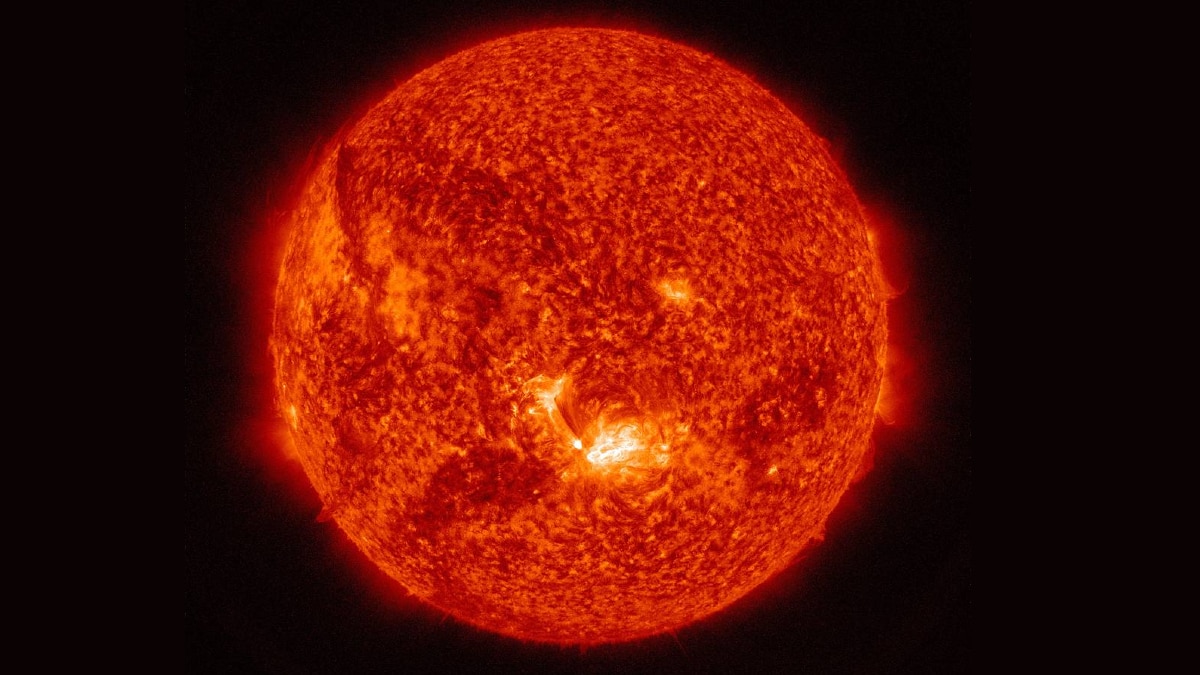A geomagnetic storm, triggered by high-speed solar winds from the Sun, is predicted to hit Earth today. However, it is unlikely to pose any threat to life on the planet as it has been classified as G-1 and is expected to be a mild geomagnetic storm. The high-speed solar winds that cause the solar storm, originate from a hole in the Sun, which is in the most active phase of its nearly 11-year solar cycle. Gaseous material was observed flowing from the southern hole in the Sun’s atmosphere, according to National Oceanic and Atmosphere Administration’s Space Weather Prediction Center (SWPC).
When such solar storms hit Earth or any planet with strong magnetic field, the solar debris gets absorbed by the magnetic field and triggers geomagnetic storms. The magnetic field of Earth gets slightly compressed during such event due to the waves of the highly energetic particles.
These particles then end up trickling down the Earth’s atmosphere near the poles and interact with the molecules present there. The result of this is the spectacular green auroras or the Northern Lights near the poles, according to Live Science.
The holes in the Sun’s atmosphere, called coronal holes, are the areas on the star where the electrified gas or plasma is cooler and less dense. In these regions, it has also been observed that the Sun’s magnetic lines beam outwards into space instead of looping back in. This causes the solar material to shoot out in a torrent at speeds up to 2.9 million kilometres per hour.
The geomagnetic storm is predicted when the Sun is in the most active phase of its nearly 11-year solar cycle.
In the latest predicted event, the G1 geomagnetic storm is unlikely to cause any damage to life on Earth but can still affect power grids and impact some satellite functions such as those used for GPS systems and mobile devices.
When it comes to stronger geomagnetic storms, they can disrupt internet services, and have a greater impact on the Earth’s magnetic field, even dislodging satellites from orbit that can cause them to hurtle towards Earth.
